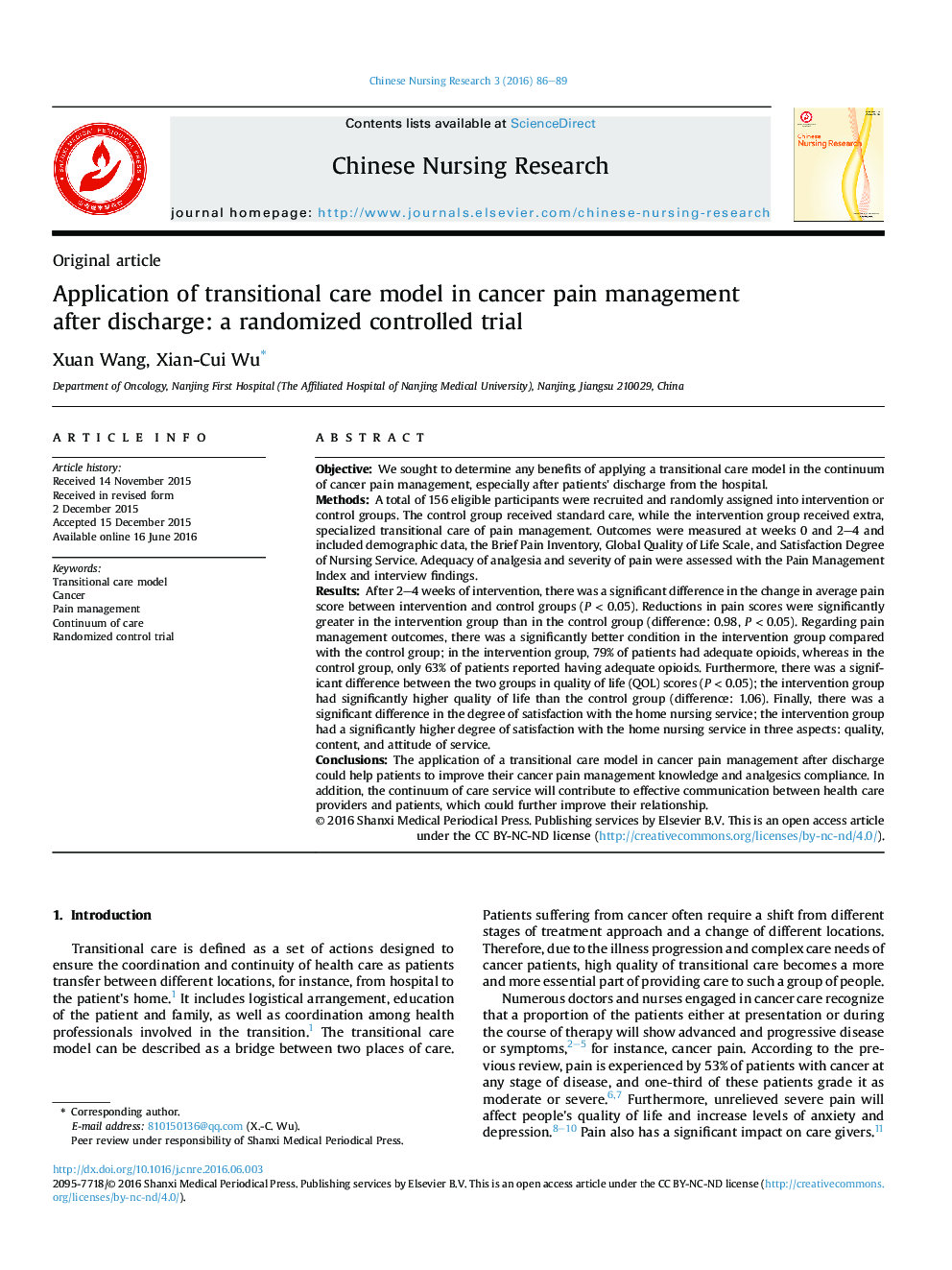| Article ID | Journal | Published Year | Pages | File Type |
|---|---|---|---|---|
| 2645594 | Chinese Nursing Research | 2016 | 4 Pages |
ObjectiveWe sought to determine any benefits of applying a transitional care model in the continuum of cancer pain management, especially after patients' discharge from the hospital.MethodsA total of 156 eligible participants were recruited and randomly assigned into intervention or control groups. The control group received standard care, while the intervention group received extra, specialized transitional care of pain management. Outcomes were measured at weeks 0 and 2–4 and included demographic data, the Brief Pain Inventory, Global Quality of Life Scale, and Satisfaction Degree of Nursing Service. Adequacy of analgesia and severity of pain were assessed with the Pain Management Index and interview findings.ResultsAfter 2–4 weeks of intervention, there was a significant difference in the change in average pain score between intervention and control groups (P < 0.05). Reductions in pain scores were significantly greater in the intervention group than in the control group (difference: 0.98, P < 0.05). Regarding pain management outcomes, there was a significantly better condition in the intervention group compared with the control group; in the intervention group, 79% of patients had adequate opioids, whereas in the control group, only 63% of patients reported having adequate opioids. Furthermore, there was a significant difference between the two groups in quality of life (QOL) scores (P < 0.05); the intervention group had significantly higher quality of life than the control group (difference: 1.06). Finally, there was a significant difference in the degree of satisfaction with the home nursing service; the intervention group had a significantly higher degree of satisfaction with the home nursing service in three aspects: quality, content, and attitude of service.ConclusionsThe application of a transitional care model in cancer pain management after discharge could help patients to improve their cancer pain management knowledge and analgesics compliance. In addition, the continuum of care service will contribute to effective communication between health care providers and patients, which could further improve their relationship.
